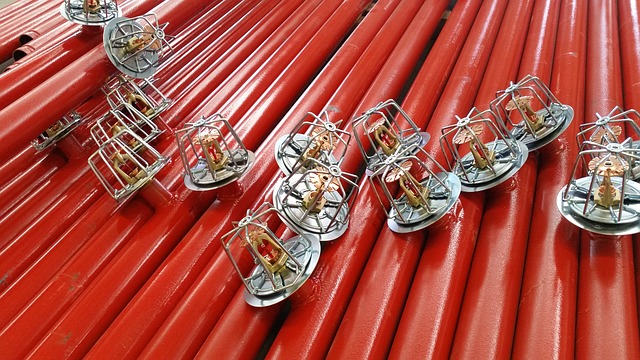
Fire suppression systems can do wonders for protecting you, but it is also wise to learn all about them before investing in one for your building.
If you’re familiar with fire safety, you know that fire suppression systems are essential in preventing the spread of fire and protecting valuable business assets. However, you might be wondering if the fire suppression system happens to go off while someone is in the room, will that person be hurt? The correct answer is that it all depends on the kind of system that you have. Fire suppression systems can do wonders for protecting you, but it is also wise to learn all about them before investing in one for your building. Here are several of the most common kinds of fire suppression systems that are safe for your employees and customers.
Water
For most buildings and types of businesses, a water-based fire suppression system (or sprinkler system) is the minimum requirement for the fire suppression and code compliance. Water, of course, isn’t inherently harmful to people. However, its also not the most effective type of suppression system for every single circumstance. In some cases, water can be a bit more dangerous in the presence of certain kinds of fires than other available extinguishing agents. It can also cause irreversible damage to equipment or property, requiring plenty of extensive cleanup and awful business interruption.
Gaseous Clean Agent Systems
There are three basic categories of gaseous clean agent systems. Inert gas systems, carbon dioxide systems, and chemical clean agent systems. Each kind has unique properties that might lend themselves well to different types of fires and applications.
Chemical
Chemical clean agent systems, like NOVEC 1230 or FM200, are very similar to inert gas systems because they discharge and disperse a gas. They provide extinguishments through heat absorption and clean and leave no residue behind. They provide extinguishment mostly through heat absorption and leave no residue. This means they will not cause additional equipment damage, which limits downtime. These chemicals are non-toxic to humans in the concentrations used for extinguishing fires. If a system goes off and you are in the room with properly calculated design concentrations, you will be fine.
Inert Gases
Inert gasses like inergen, nitrogen, and aragonite are incredibly useful as fire suppressants. They put out fires by smothering them, reducing or displacing any oxygen. Often, water ends up causing much more harm than good to property, such as in server rooms or around any electrical equipment. Inert gasses are great for situations where sensitive equipment has to be protected. These systems are non-toxic to humans and like FM-200 or NOVEC1230, when properly designed they do not present a threat to health and safety.
Carbon Dioxide
Carbon dioxide fire suppression systems are perhaps the oldest of all clean agent systems. C02 has been used in systems since the early twentieth century. It’s inexpensive when comparing it to other clean agents. However, carbon dioxide extinguishers displace oxygen. In certain situations, this can be extremely hazardous to personnel. The application of a CO2 system will need to factor in human exposure before designing the system.
Fire Protection Services from Fireline
Whether you need smoke detectors, fire extinguishers, or an automatic sprinkler system installed at your commercial property, Fireline has you covered. We have been protecting people and property from fire damage since 1947—and our experience shows in our excellent work! We are known for our superb customer service, our expertise, and our reliability. For more information on how we can help your residential or commercial property, visit us online or give us a call at (800) 553-3405. We are located in Baltimore, MD, with a second office in Leesburg, VA. For more fire safety tips, be sure to follow us on Facebook, Twitter, and LinkedIn.
